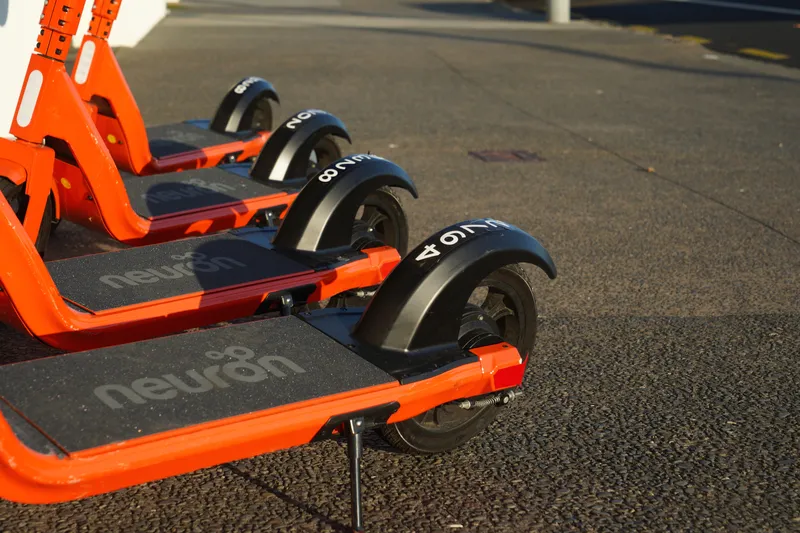
Neuron Mobility has launched on online school, accessed via the Neuron app or company website, to educate e-scooter riders in a bid to improve micromobility safety.
ScootSafe Academy, developed in consultation with the Royal Society for the Prevention of Accidents (RoSPA), includes educational videos, quizzes and games to help improve rider behaviour, and in turn, improve e-scooter safety.
In effect, the venture is a digital extension of Neuron’s in-person #ScootSafe events, which last year trained thousands of people at 12 events across Newcastle, Slough and Sunderland, covering issues such as responsible parking and riding etiquette.
It replaces Neuron’s in-app Safety Centre, and people who have been temporarily suspended or reported for unsafe riding or bad parking will be sent a warning and also targeted training modules specific to their violation, the company says.
Users will be able to view local riding rules and will receive incentives to watch educational videos, and for participating in quizzes and games.
Those completing the tasks will receive up to £5.50 of free credits towards future rides. The platform will which has helped over tens of thousands of riders familiarise themselves with their local riding rules.
Cormac Quinn, Neuron’s UK Regional Manager, said: “In an industry-first, the platform will also reeducate riders who have broken the rules by sending them bespoke training modules to help correct bad parking, dangerous riding or other violations."
"We are always innovating to enhance rider safety, and that includes providing our riders with the very best safety education platform so they know how to use our e-scooters in a safe and responsible way.”
Nathan Davies, executive head of policy and portfolio at RoSPA, added: "It’s important to stress that it’s still the personal responsibility of each rider to follow the rules."
Neuron's scooters are geofenced and have a ‘topple detection’ feature that alerts the operations team to vehicles that have been left on their side so they can be repositioned.









